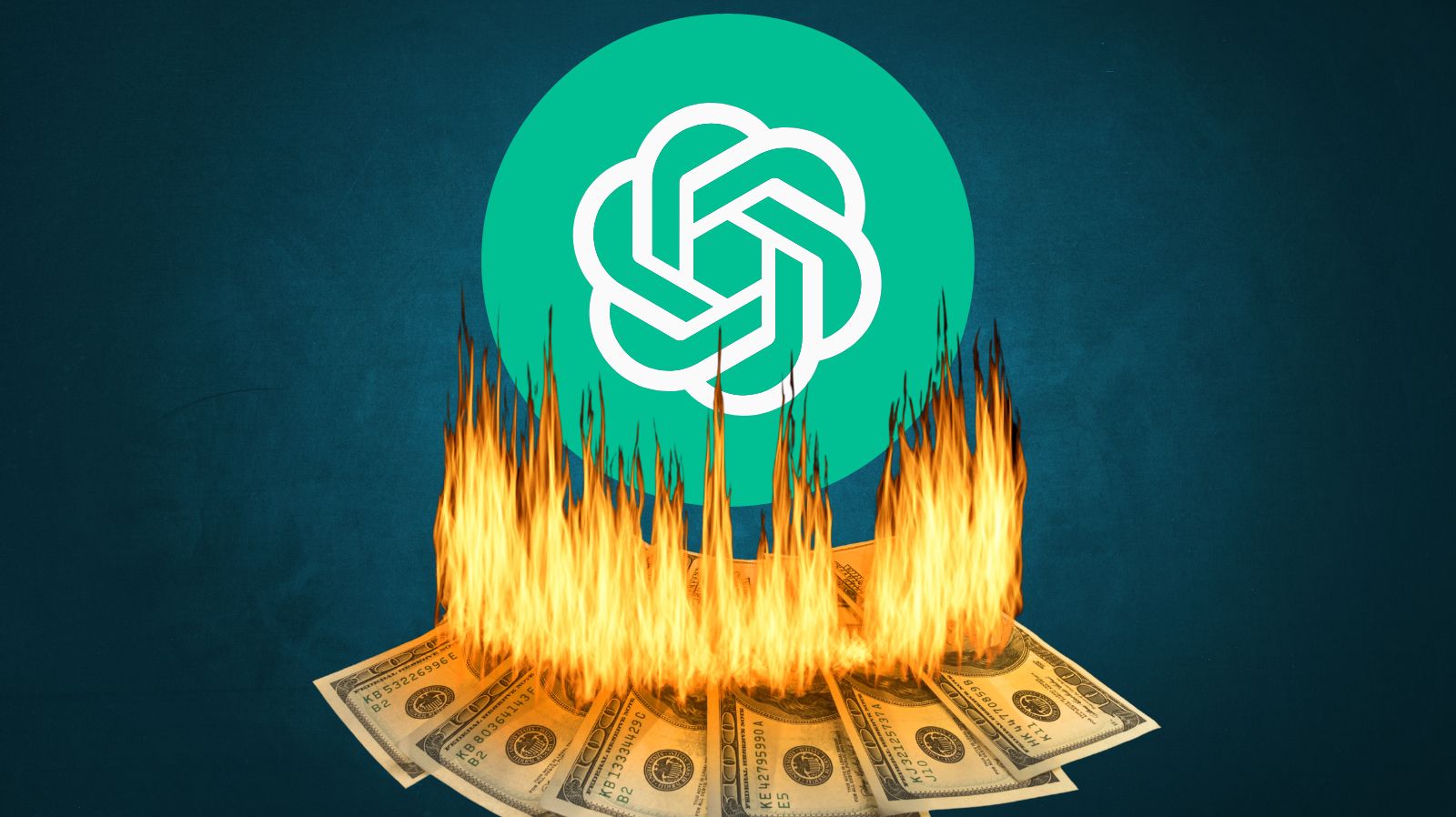- Item 1
- Item 2
- Item 3
- Item 4
OpenAI Suffers $540M Loss in 2022, Contemplates $100B More to Conquer AI
As the AI race heats up, OpenAI may need as much as $100 billion to reach its goal of developing artificial general intelligence, highlighting the steep financial challenges other AI startups may encounter in a rapidly developing market.

OpenAI has burned through $540M of cash in 2022. And that's just the start. Photo illustration: Artisana
🧠 Stay Ahead of the Curve
OpenAI reported a $540 million loss in 2022, with ChatGPT development costs consuming significant computing resources.
The immense loss highlights the financial strains and high stakes in the race to develop artificial general intelligence (AGI). Sam Altman believes the company may need $100B to get there.
OpenAI's capital burn may foreshadow the difficulties faced by other AI startups competing with well-funded incumbents in a rapidly evolving market.

May 04, 2023
OpenAI reported a staggering loss of $540 million in 2022, generating a mere $28 million in revenue as development expenses for ChatGPT surged, according to insiders. First reported by The Information, it seems that a large portion of these losses can be attributed to the high costs of training language models and the pricey technical talent the company has brought on board to advance its AI progress.
Funding the Path to Artificial General Intelligence
OpenAI CEO Sam Altman privately anticipates needing to raise another $100 billion to achieve the company's goal of creating artificial general intelligence (AGI), sources shared. As the AI arms race intensifies, OpenAI’s costs will escalate even further in 2023, likely leading to an even higher loss.
Despite the overwhelming success of ChatGPT, OpenAI plans to invest more capital than ever in cloud computing for powering its language models and training new versions. Furthermore, data costs are set to soar as platforms like Reddit and StackOverflow have introduced policies that charge AI firms for access to their previously free data sets.
A recent New York Times article revealed that Elon Musk terminated OpenAI's access to the Twitter data set after discovering they were paying only $2 million annually. It remains uncertain whether OpenAI renegotiated access at a higher price point.
OpenAI initially projected $200 million in revenue for 2023; however, internal estimates indicate that the company will surpass this forecast, sources divulged. The rapid adoption of ChatGPT's paid "Plus" plan along with API customers using OpenAI's language models, such as social media app Snap, will both contribute significantly to 2023's revenue.
Large companies like Microsoft stand to reap the rewards of AI
Microsoft's $10 billion investment in OpenAI positions it to reap the rewards of the company's ongoing success. As part of this investment, Microsoft secured rights to 75% of OpenAI's profits until its principal is repaid, as well as additional rights to 49% of profits thereafter. Microsoft also gained priority access to OpenAI's software, allowing it to resell OpenAI's software to its Azure customers along with its own AI-powered products that utilize OpenAI's technology.
OpenAI's ambitious fundraising and close ties to Microsoft raise questions about whether other startups can compete on a similar scale. This week, Inflection AI launched its own chatbot, Pi, after raising a massive $225 million seed round led by LinkedIn co-founder Reid Hoffman and DeepMind leader Mustafa Suleyman. Despite being substantial, this funding pales in comparison to the capital OpenAI has amassed.
However, as ChatGPT dominates the market, early reviews of Pi seem underwhelming. While some praise its personalized tone, others question its ability to surpass ChatGPT. AI expert and investor Allie Miller expressed her reservations after extensively testing Pi, stating, "Something feels off to me."
Pitchbook estimates the global generative AI market will reach $42.6 billion in 2023, but skeptics doubt that startups will benefit. Sam Lessin, a venture capitalist at Slow Ventures, believes that larger companies will ultimately capture the majority of the AI market share. On Twitter, Lessin shared his skepticism, "I am very very very skeptical that the value of generative AI will be captured by startups vs. incumbents.” He further explained, “Unlike a real platform shift, AI is just an accelerant to existing businesses and existing patterns of distribution - and is super-duper easy for incumbents to just slot in to what they already do."
Research
In Largest-Ever Turing Test, 1.5 Million Humans Guess Little Better Than ChanceJune 09, 2023
News
Leaked Google Memo Claiming “We Have No Moat, and Neither Does OpenAI” Shakes the AI WorldMay 05, 2023
Research
GPT AI Enables Scientists to Passively Decode Thoughts in Groundbreaking StudyMay 01, 2023
Research
GPT-4 Outperforms Elite Crowdworkers, Saving Researchers $500,000 and 20,000 hoursApril 11, 2023
Research
Generative Agents: Stanford's Groundbreaking AI Study Simulates Authentic Human BehaviorApril 10, 2023
Culture
As Online Users Increasingly Jailbreak ChatGPT in Creative Ways, Risks Abound for OpenAIMarch 27, 2023
